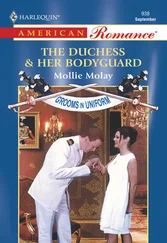Hugh Walpole - The Duchess of Wrexe, Her Decline and Death
Здесь есть возможность читать онлайн «Hugh Walpole - The Duchess of Wrexe, Her Decline and Death» — ознакомительный отрывок электронной книги совершенно бесплатно, а после прочтения отрывка купить полную версию. В некоторых случаях можно слушать аудио, скачать через торрент в формате fb2 и присутствует краткое содержание. Жанр: foreign_prose, История, foreign_edu, foreign_antique, на английском языке. Описание произведения, (предисловие) а так же отзывы посетителей доступны на портале библиотеки ЛибКат.
- Название:The Duchess of Wrexe, Her Decline and Death
- Автор:
- Жанр:
- Год:неизвестен
- ISBN:нет данных
- Рейтинг книги:5 / 5. Голосов: 1
-
Избранное:Добавить в избранное
- Отзывы:
-
Ваша оценка:
- 100
- 1
- 2
- 3
- 4
- 5
The Duchess of Wrexe, Her Decline and Death: краткое содержание, описание и аннотация
Предлагаем к чтению аннотацию, описание, краткое содержание или предисловие (зависит от того, что написал сам автор книги «The Duchess of Wrexe, Her Decline and Death»). Если вы не нашли необходимую информацию о книге — напишите в комментариях, мы постараемся отыскать её.
The Duchess of Wrexe, Her Decline and Death — читать онлайн ознакомительный отрывок
Ниже представлен текст книги, разбитый по страницам. Система сохранения места последней прочитанной страницы, позволяет с удобством читать онлайн бесплатно книгу «The Duchess of Wrexe, Her Decline and Death», без необходимости каждый раз заново искать на чём Вы остановились. Поставьте закладку, и сможете в любой момент перейти на страницу, на которой закончили чтение.
Интервал:
Закладка:
Munich also gave her the experience and revelations of May Eversley.
There were some twenty or thirty girls who were, with Rachel, under the finishing care of Frau Bebel, but Rachel held herself apart from them all. She could not herself have explained why she did so. It was partly because she felt that she had nothing, whether experience or discovery, to give to them, partly because they seemed already so happy and comfortable amongst themselves that they had surely no need of her, and partly because she feared that from some person or some place, suddenly round the corner there would spring the terror again. She could even fancy that her grandmother, watching her, had placed horrors behind curtains, closed doors, grimed and shuttered windows.—"If you think, my dear," she might perhaps be saying, "that you've escaped by this year or two in Germany, you're mightily mistaken.—Back to me you're coming."
But May Eversley was different from the other girls. She was different because she saw things without a muddle, knew what she wanted, knew what she disliked, knew what was delightful, knew what was intolerable.
To Rachel this clear-cut decision was more enviable than any other quality that one could have. At this stage of her experience it was the assent, so it seemed to her, that could give life its intensest value. "Sit down and see, without any exaggeration or false colouring, what you've got. Take away, ruthlessly, anything that you imagine that you've got but haven't. See what you want. Take away ruthlessly everything that you imagine that you would like to have but are not confident of securing. See what's happened to you in the past. Take away ruthlessly any sentimental repentances or sloppy regrets, but learn quite resolutely from your ugly mistakes."
Rachel's world had hitherto been limited very largely to the schoolroom in Portland Place, the park and Beaminster House, the country place-in-chief (three others, one in Leicestershire, one in Northumberland, one in Norfolk), but even within this limited country the terrific importance of those rules was driven in upon her.
She felt that her grandmother was clear-headed, but, no, none of the others—not Aunt Adela, nor the uncles, nor any of the governesses. She was allowed to meet one or two little boys and girls of her own age. She walked with them in the park, played with them at Beaminster House, had tea with them occasionally, but they were, none of them, clear-headed.
She was not priggish about this discovery of hers. She did not despise other people because their definite rules did not seem to them of importance. She did not talk about these things.
To see facts very steadily without blinking was impelled upon her by the necessity for courage. It was the only weapon wherewith to fight her grandmother. "Now," she might say to herself, "this half-hour of yours. Is it so bad? What definitely do you fear about it? Is it the knock at the door? Is it the crossing the room? Is it answering questions?"
So challenged her terror did fall, a little, away from her, ashamed at its inadequate cause. So she went to face every peril—"Is the danger really so bad? What exactly is it?…"
May Eversley was thin and spare, small with sharp features, pince-nez, hair brushed sternly back, and every inch of her body trained to the purpose that it was meant to fulfil. She rang her sentences on the air like coin on a plate. Meanwhile, as she explained to Rachel, she had been fighting since she was five. Her mother, Lady Eversley, was the widow of Tom Eversley, now happily deceased, once the most dissolute scamp in Europe. He had died leaving nothing but debts behind him. Since then his widow and his daughter had lived in three little rooms above a public house off Shepherd's Market, and the widow had battled to keep up the gayest of appearances. May had been, at a very early age, introduced to the struggle. "My silver mug and rattle were pawned to get a dress for mother to go to a drawing-room in. I shouldn't be here now if it weren't for an uncle, and it's the last thing he'll do for us. So back I go in two year's time—to do my damnedest."
Of course she was clear-headed—she had to be.
"There are only two sorts of people," she said to Rachel. "Like soup—thick and clear—the Clear ones get on and the Thick don't."
May obviously liked Rachel, but was amused by her. Nobody, it seemed to May, showed so nakedly her emotions as Rachel, and yet, also, nobody could produce, more suddenly, the closest of reserves. May, to whom the world had been, since she was six, a measured plain of contest, marvelled at the poignancy of Rachel's contact with it. "If she's going to be hurt as easily as this by everything, how on earth is she going to get through?"
Then, as the Munich days passed, May found, to her own delight, Rachel's keen sense of humour. Munich afforded enough food for it, and finally one discovered that Rachel smiled more readily than she trembled, but she hid her smile because, as yet, she was not sure of it.
"All she wants," May Eversley concluded, "is to be told things."
Nobody in the world could be better adapted to give out these revelations. London, to May Eversley, was an open book; moreover, the most stormy of battle-fields on which the combatants fought, were wounded, were slain, were gloriously victorious.
She told Rachel a great deal—a great deal about people, a great deal about sets and parties, a great deal about likes and dislikes. She had on her side one burning curiosity to know about Rachel's Duchess. "Is she as terrible, so tremendous as people say? Has she such a brain even now? Old Lady Grandon, who was a great friend when they were both girls, says that she wasn't clever then a bit—rather stupid and shy—but you never know. Jealousy on old Grandon's part, I expect. They say she's wonderful still."
Questions of taste never worried May Eversley, and it did not worry her now that Rachel might dislike so penetrating an inquisition. But at least May got nothing for her trouble. Rachel told her nothing.
May's final word was, "You care too much about it all—care whether it's going to hurt, whether it's going to be frightening or not. My advice to you is, just dash in, snatch what you can, and dash out again. It doesn't matter a hair-pin what anyone says. Everyone says everything in London, and nobody minds. They've all got the shortest memories."
Rachel, sitting now in her little room and thinking of Munich wondered how completely her own discovery of London would coincide with May's. May's idea of it was certainly not Aunt Adela's. Aunt Adela, Rachel thought, was far too dried and brittle to risk any sharp contact with anything. None of her uncles, she further reflected, liked sharp contacts, and yet, how continually grandmother provided them!
How comfortable all of them—Aunt Adela and the uncles—would be without their mother, and yet how proud they were of having her! For herself, Rachel faced her approaching deliverance with a tightening of all the muscles of her body. "I won't care. It shall be as May says—and there are sure to be some comfortable people about, some people who want to make it pleasant for one."
Then there was a tap at the door and Uncle John came in. Uncle John often came in about half-past five. It was a convenient time for him to come, but also, perhaps, he recognized that that approaching half-hour that Rachel was to have with his mother demanded, beforehand, some kind of easy, amiable prologue.
To-day, however, there was more in his comfortable smiling countenance than merely paying a visit warranted. He stood for a moment at the door looking over at her, rather fat but not very, his white hair, his pearl pin, his white spats all gleaming, a rosiness and a cleanliness always about him so that he seemed, at any moment of the day, to have come straight from his tub, having jumped, in his eagerness to see you, into his beautiful clothes, and hurried, all in a glow, to get to you.
Читать дальшеИнтервал:
Закладка:
Похожие книги на «The Duchess of Wrexe, Her Decline and Death»
Представляем Вашему вниманию похожие книги на «The Duchess of Wrexe, Her Decline and Death» списком для выбора. Мы отобрали схожую по названию и смыслу литературу в надежде предоставить читателям больше вариантов отыскать новые, интересные, ещё непрочитанные произведения.
Обсуждение, отзывы о книге «The Duchess of Wrexe, Her Decline and Death» и просто собственные мнения читателей. Оставьте ваши комментарии, напишите, что Вы думаете о произведении, его смысле или главных героях. Укажите что конкретно понравилось, а что нет, и почему Вы так считаете.












